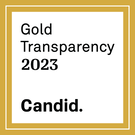|
As parents, facilitators, and responsible adults, the single most important thing we can do to effect positive change on the next generation is to be positive role models. The cliché “Actions speak louder than words” has been supported by literally thousands of studies since Bandura’s bobo doll experiment in the early 1960s. We have since learned things such as “behavior determines attitudes” and the tremendous power of situations to influence behavior. Armed with 50-plus years of research, it seems only logical that we as a society should be living the life we hope our children to adopt. In the following article you will read about several of the ways in which Open Connections as an organization–and most importantly the facilitators as individuals–live this model.
Respect for all people and the use of Process Language: You no doubt have heard talk about the “Balanced Response” or “Process Language,” but how exactly does that play out at OC? I like to think about Process Language as a way of being. Instead of attempting to instruct, we approach situations as an opportunity to learn. For example, when a youth says, “Five times five is 30” instead of replying, “No, it’s 25,” the response is “Tell me what you’re thinking.” What follows is a non-judgmental dialogue in which the youth figures out for herself that five times five is obviously not 30. Of great importance here is the distinction between praising an obviously incorrect answer (no one wants a youth walking away thinking that 5×5=30) and engaging in a process that helps the youth figure out the answer without judgment. This is also why we strive to not ask a question to which we already know the answer. While Process Language at OC may be necessary, it is surely not sufficient. In my experience, most successful OC families are those who choose to engage fully in the OC process in their personal lives. This by no means suggests that all encounters should be met with Balanced Responses, but it does suggest that taking personal responsibility for one’s actions, respecting all people and valuing the input of youth, and conducting oneself in a mature and respectful manner are crucial. OC can only be as magical as its members choose to be. Humans will always make mistakes, and it is the process by which we handle these mistakes and the way in which we treat others that reflects who we are. Intellectual curiosity and engagement in meaningful work: This is huge, and easy to overlook. More than anything, I believe this is what differentiates the OC model from the traditional school model. Facilitators are actively engaged in the pursuit of learning and exploration alongside youth. Void of a curriculum and set agenda for imparting children with specific knowledge passed down from adults, at OC the Facilitators have the freedom to explore their own curiosities and to model the type of inquisition that we want all our children to have. For example, in the lab, Sue shares a background of the chemistry related to measuring pH, but she doesn’t make available the “correct” assortment of liquids to find a substance representing each of the levels one through twelve on the pH scale we are using. Instead, Sue and I work alongside youth, using our own test strips, actively talking about our observations and collaborating with youth in search of possible solutions. One youth asked, “What’s the difference between our upper pond and creek waters?” Interesting question, let’s check it out. You want to experiment with some chocolate sauce and Mike’s Tom’s of Main toothpaste? Sure, why not! Youth are not working to guess our hidden answers; instead we are collaborating to find possible solutions. Facilitator engagement is also apparent in how we live outside of our work at OC. For example, before program Meg is often found talking about book titles. Meg is just as likely to be taking down a recommendation of a great title as she is to be recommending a book to a young person. The message remains the same; books provide us with unlimited access to valuable and enjoyable information and experiences. We want active participants, not passive instructors. Just go stand on the sidelines during an outdoor game between Group Tutorial IV and Shaping Your Life youth and watch as Mike (SYL Facilitator) puts full effort and his heart into whatever is the day’s game. I know no better example of playing amongst than Mike provides in the outdoor game. It’s virtually impossible to not enjoy a heated game of three-way capture the flag, especially knowing that in the end the 40 teens will all happily leave with an OC score of “fun to fun.” Each Facilitator or staff has his or her own passions and the OC model provides a ripe environment for them to be shared. For example, Amy shares yoga because it’s a practice she loves and it’s an important part of who she is. Mollie plays music and creates art because she possess a lifelong interest in the arts. I could give countless examples, but the premise remains the same. The OC model provides an environment of intelligent, well-spoken adults who are engaged with the world. Phrases such as: I read an article about…, I was listening to a radio piece on…, I’m wondering how…, when I traveled to…, I’m learning how to…, I just learned that…, are the norm and research tells us that these phrases and the actions that accompany them are contagious in the most positive sense of the word. There is no need to teach when there is genuine desire to learn. The Facilitator interests outside of their official “content” areas include things such as social justice, Zumba, reading, traveling, sewing, gardening, woodworking, swimming, bird watching, camping, running, literature, yoga, massage therapy, history, government, beekeeping, blacksmithing, restoring old cars, orienteering, playing logic games, singing, dancing, photography and equine studies. Engaged adults will engage youth. In summary, how we conduct ourselves in our professional and personal lives has a direct influence on those around us, especially those with whom we have close and consistent contact. Therefore, more than any subject we can teach or facilitate, how we choose to conduct ourselves has the power to have a substantial impact on those around us. Let us all continue to strive to be the respectful, honest, engaged learners we want to see reflected in our next generation. Reprinted from the Open Connections Magazine – January/February 2015
0 Comments
Leave a Reply. |
Blog Posts
For the most part, these articles first appeared in the Open Connections Magazine. If you would like to sign up for our mailing list, the posts will come right to you! Archives
March 2016
Categories |

 RSS Feed
RSS Feed

